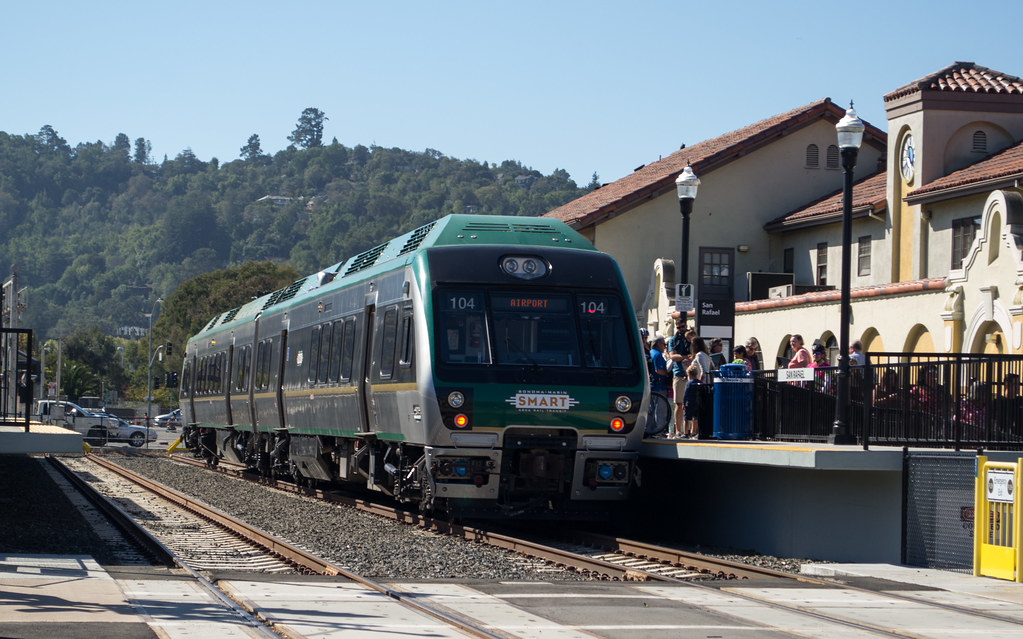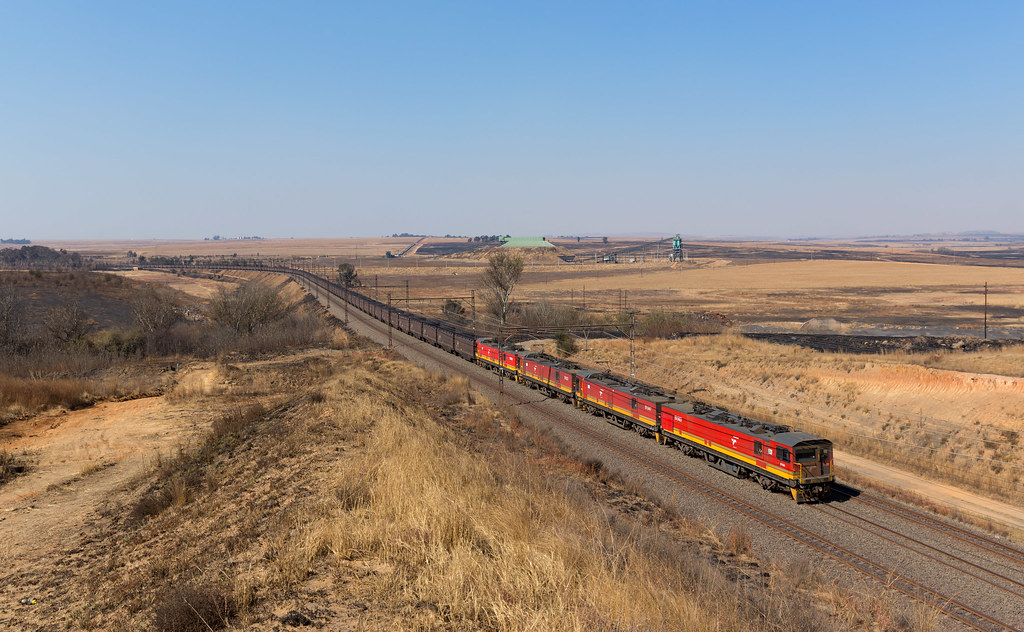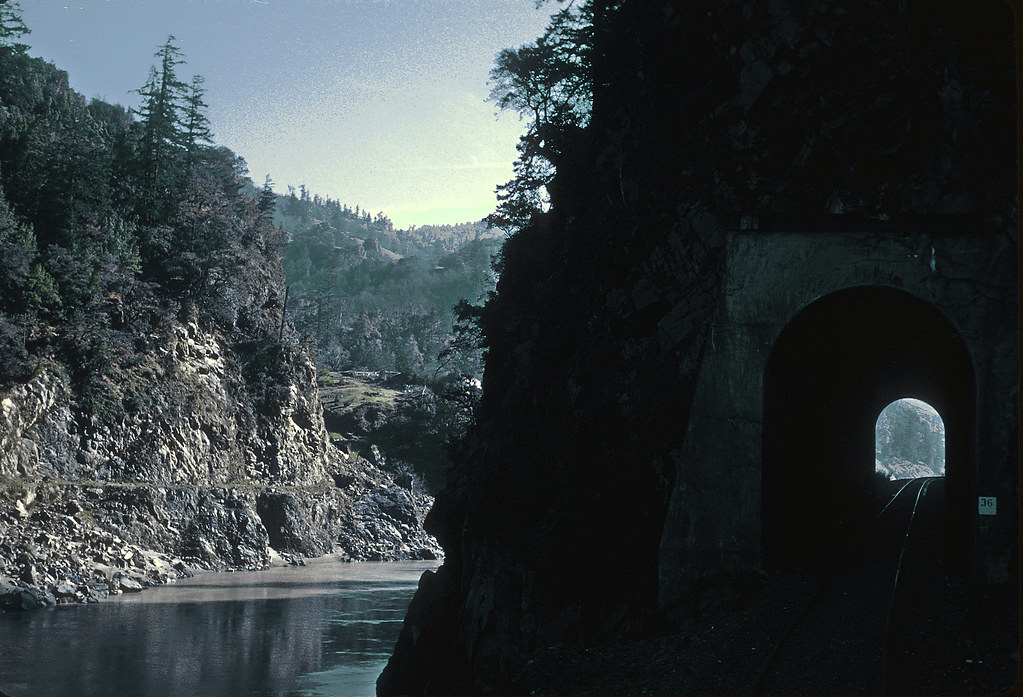
Sonoma-Marin Transit (SMART) passenger train waiting at station. Credit: Creative Commons
Residents of the Bay Area have fought several battles over the past decade to prevent the movement of coal shipments along the region’s rail lines and through the ports. So, when plans surfaced in August 2021 to ship coal to a proposed terminal on Humboldt Bay via rail lines passing through the North Bay, it’s unsurprising that opposition quickly emerged.
The primary concerns are both global and local: burning coal exacerbates climate change, and railside neighbors are plagued by unhealthy dust as it is moved. The City of Oakland sued a terminal owner over plans to handle coal, while the City of Richmond drafted an ordinance to eliminate coal storage and shipment at the Levin Terminal. Environmental groups are concerned about coal dust contamination, and also the potential for derailments in slide-prone Eel River canyon.
Ownership of the rails, along with shipping rights, is a complex situation involving several agencies as well as private parties. In Marin and Sonoma counties, SMART (Sonoma-Marin Area Rapid Transit) operates passenger service on part of the route which would be involved in any coal transport. In May 2020, SMART acquired the authority for freight operations on rail lines in the two counties.The state-created North Coast Rail Authority, which owns the right-of-way, still controls the portion in Mendocino and Humboldt counties but will transfer ownership or maintenance of its Sonoma segments to SMART. SMART is also taking over equipment and freight operations of the Northwest Pacific Railroad Company, a private company which has been leasing the functional part of the line in the North Bay.
In Mendocino and Humboldt counties, years of natural disasters, financial troubles and neglect have practically eradicated the line in many locations. State Senator Mike McGuire (D-Healdsburg) has secured state funding to convert the rail right-of-way between Willits and Eureka to a scenic regional trail. However, the Northern California Rail Company, the new LLC hoping to use the line for coal shipments, has filed an objection with the US Surface Transportation Board. According to a staffer in McGuire’s office, the agency “has put the process on hold and it is unclear when they will have a ruling.”

100-car coal train. Credit: Creative Commons
Even if the company succeeds in killing the current rails-to-trails application, the significant costs of rebuilding rails and financing a new terminal may make its venture the latest in a series of failed attempts to resuscitate North Coast rail. Senator McGuire’s bill, SB307, would block state funding for rail improvements along this corridor. US Representative Jared Huffman (D-Marin) told the Santa Rosa Press-Democrat, “I’m going to be urging [the US Department of Transportation] in a full-throated way not to loan that money.” Partnership in Humboldt County has also disappeared; one Native American tribe withdrew support after learning the new terminal would be used for coal.
Meanwhile, in the East Bay, Richmond shippers and terminal owners have agreed to phase out all shipments of coal and petroleum products by 2024. However, Oakland’s terminal, now with a new owner, is due back in court this spring, as coal producers continue to look for West Coast ports to handle their exports.

Eel River Canyon rail line. Credit: Creative Commons

